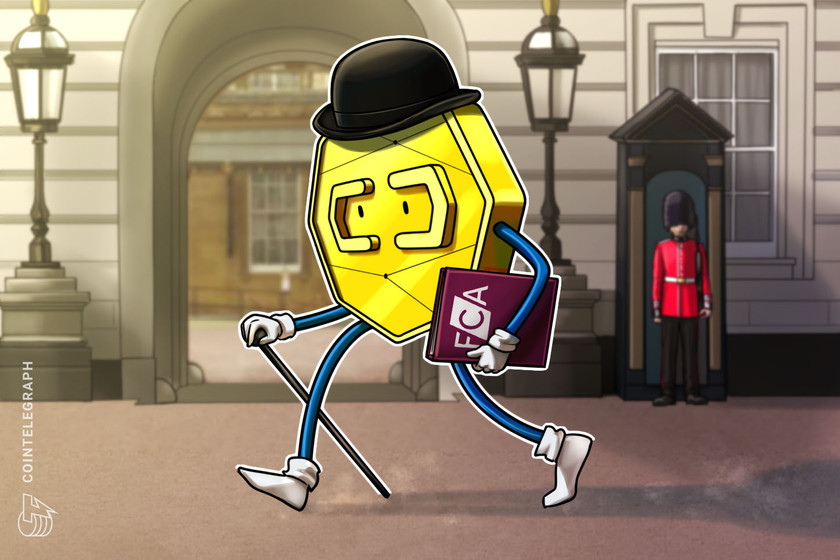FCA highlights limited role as unregistered businesses continue to operate

Crypto.com has become the latest company to register with the United Kingdom’s Financial Conduct Authority, while many continue to operate without approval.
The number of unregistered cryptocurrency-related businesses continues to outweigh those signed up with the United Kingdom’s Financial Conduct Authority. Crypto.com became the latest business from the cryptocurrency ecosystem to register with the FCA, joining a list of a confirmed 37 companies with the green light to offer services in the country.
Just seven businesses have gone through the registration process in 2022 to achieve Money Laundering Regulations approval, which includes eToro UK, DRW Global Markets LTD, Zodia Markets (UK) Limited, Uphold Europe Limited, Rubicon Digital UK Limited and Wintermute Trading LTD. Crypto.com is the seventh, registered under FORIS DAX UK Limited.
The FCA has also compiled a list of U.K.-based businesses that continue to carry out ‘crypto asset activity’ without being registered with the FCA for Anti-Money Laundering (AML) purposes. The list is extensive, mainly featuring firms offering a variety of cryptocurrency trading and foreign exchange services.
New cryptocurrency-focused regulations were instituted in January 2020 to allow the FCA to supervise businesses operating in the space and enforce AML and counter-terrorism financing regulations.
Companies were given just over a year to submit applications to be eligible for a temporary registration regime (TRR), while failure to do so and continue operating could be deemed a criminal offense.
Related: Enforcement and adoption: What do UK’s recent regulatory aims for crypto mean?
Cointelegraph reached out to the FCA to discuss its regulatory reach over the industry, the process of the temporary registration regime and the number of unregistered entities currently operating. The organization stressed that it does not oversee the entire cryptocurrency landscape and that it does not hold consumer protection powers.
The FCA also noted that it was limited in registering U.K.-based cryptocurrency exchanges for Anti-Money Laundering purposes. It further explained that the TRR was set up to allow crypto firms already attempting to register to retain temporary trading permissions during the process.
During the TRR, firms could still apply to register with the FCA and can continue to do so after the cut-off in April 2022. The regulator also stressed that firms should not trade until they have registered. The FCA concluded assessments of all firms during the TRR, except those where it was deemed necessary to continue to have temporary registration.
The latest FCA list of firms with temporary registration had just one company listed as of Aug. 17. Revolut, which offers a host of digital banking services, is the sole business on this list which has slowly seen companies drop off through 2021 and 2022. The FCA would not comment on the individual firm’s ongoing temporary registration status.
A spokesperson for the FCA told Cointelegraph that the standards it set for registration were aimed at providing a safe environment for investors while supporting the innovation promised by the industry:
“Successful registration depends upon a firm meeting the minimum standards we expect to prevent money laundering and terrorist financing, and we have seen too many financial crime red flags missed by the crypto asset businesses seeking registration.”
The FCA will continue to process registration applications for cryptocurrency exchanges and service providers, stressing the importance of minimum standards to ensure provision of adequate systems to identify and prevent the flow of funds linked to criminal activities:
“We have seen, as a result, new regulated firms, many of them drawing on the use of crypto or its underlying technology. Strong, well-respected regulation helps innovators by providing consumer and investor confidence.”
While the FCA admitted that it lacked the teeth to crack down on unregistered operators in the country, it continues to keep tabs on these organizations. The spokesperson highlighted the fact that the U.K. Parliament controls regulatory perimeters and ultimately determines what the authority regulates.



